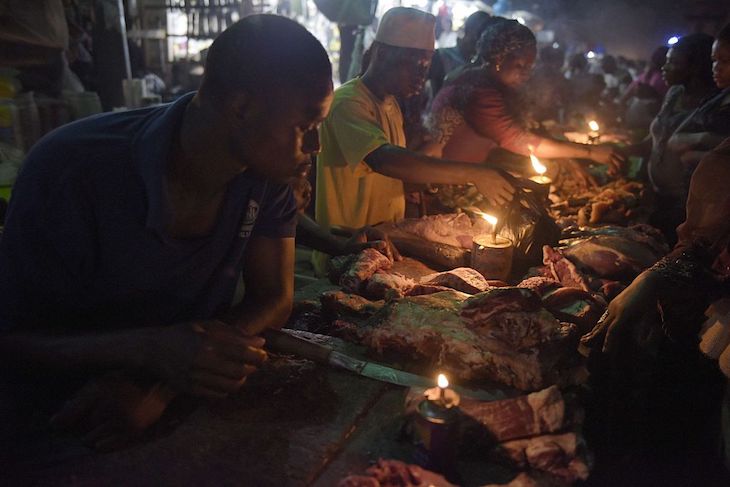What is the point of the World Bank? You probably think of it, if at all, as a benign institution, a kind of giant, multilateral aid agency, whose job it is to bring liquidity to developing nations and help them grow out of poverty.
Until not so long ago, that was indeed its function. Created alongside the International Monetary Fund at the 1944 Bretton Woods Conference, the bank did sterling work in its early years helping countries like France recover from the war; and later, giving mostly third world countries the vital seed money needed to help attract investors to risky capital projects. Its multiplier effect on investment can be extraordinary. In 2013, the World Bank gave Kosovo $40 million towards building a lignite power station. This sent out the positive signal needed to encourage the private sector to complete the funding with another $1,960 million.
Amazing. Except that’s not what the World Bank does now. It won’t fund any more coal-fired power stations because they are not clean and green. Instead, it wants developing nations to embrace intermittent, unreliable and wildly expensive renewables like wind and solar as part of a mission — outlined by former UN Secretary General Ban Ki-moon — to ‘defeat poverty and save the planet’. In fact, it will achieve neither of those goals. Take Nigeria, whose capital Lagos has overtaken Cairo as Africa’s largest city, but whose electrical grid produces so little power that the economy runs mostly on private (and filthy, polluting) diesel generators. Nigeria’s National Electric Power Authority (NEPA plc) is known as ‘Never Expect Power Always, Please Light a Candle’. Blackouts and brownouts are common, as they are throughout sub-Saharan Africa, and the costs to the economy are enormous. The local mobile phone company MTM, with 62 million subscribers, spends 70 per cent of its operating expenditure on diesel to keep its network powered up.
Here is Nigeria’s Minister of Finance, Kemi Adeosun: ‘We want to build a coal power plant because we are a country blessed with coal, yet we have a power problem. So it doesn’t take a genius to work out that it will make sense to build a coal power plant. However, we are being blocked because it is not green. This is not fair, because they have an entire western industrialisation that was built on coal-fired energy.”
She’s dead right it’s not fair. The UN is forever banging on about global injustice and admits that wealth redistribution is among its sustainable development goals. Yet at the same time, its policy of eco-imperialism forces renewables on a reluctant but largely helpless developing world — the surest way of guaranteeing that the world’s poorest nations stay that way.
There are 1.2 billion people without access to electricity and 2.7 billion without modern cooking facilities. Household air pollution from solid fuels is estimated to have killed 3.5 million people in 2010. The cost of blackouts and brownouts in sub-Saharan Africa is, in some cases, in excess of 5 per cent of GDP. Unlike developed nations, these countries do not need their consciences salved by bat-chomping bird-slicing eco-crucifixes. They need energy that works.
According to the UN’s figures, the cost of universal energy access is just $50 billion a year. But that’s if it comes from fossil fuel. If you insist on using renewables, the bill is at least ten times greater. Not only are renewables more materials-intensive — a kilo of steel in a gas turbine ends up producing 1,000 times more energy than it does in a wind turbine — but they require a massively more complex and expensive grid system, which developing nations can ill afford.
How did this madness happen? It began in 1995 when an Australian-American lawyer and investment banker called James Wolfensohn was appointed as the World Bank’s president. This arch-globalist was a protégé of arguably the most sinister and influential figure in the history of the green movement, the late Canadian billionaire Maurice Strong.
Strong, who was very close to Mao’s Chinese communist regime, was not a fan of democracy. That’s why he spent much of his career working through the UN, which he recognised as the ideal institution for creating a kind of one-world government run by enlightened technocrats like himself. He was also the main instigator of the 1992 Rio Earth Summit, at which he persuaded 179 nations to sign a document called Agenda 21 putting ‘sustainability’ at the heart of global policy. Environmentalism, Strong understood, was the perfect big crisis issue which could be used to subvert the sovereignty of nation states in the name of ‘saving the planet’.
Under Wolfensohn’s direction, the World Bank’s goals changed dramatically. Where before it had been all about alleviating poverty by encouraging efficient growth, now it was about more nebulous ‘progressive’ goals like supporting the environment, women’s rights, labour rights and the encouragement of NGOs. Thus, it became yet another world body to fall into line with conservative commentator John O’Sullivan’s First Law: ‘All organisations that are not actually right-wing will over time become left-wing.’
This deterioration has accelerated under its current president, Dr Jim Young Kim, an appointment of President Obama’s. As Rupert Darwell notes in an excoriating report published by the Global Warming Policy Foundation, his policy of putting ‘environmental sustainability over poverty reduction’ is inhumane. There is no economic case, let alone a moral one, for pushing ‘high-cost, operationally defective technologies on to nations where they will retard development and make electrification vastly more expensive’.







Comments